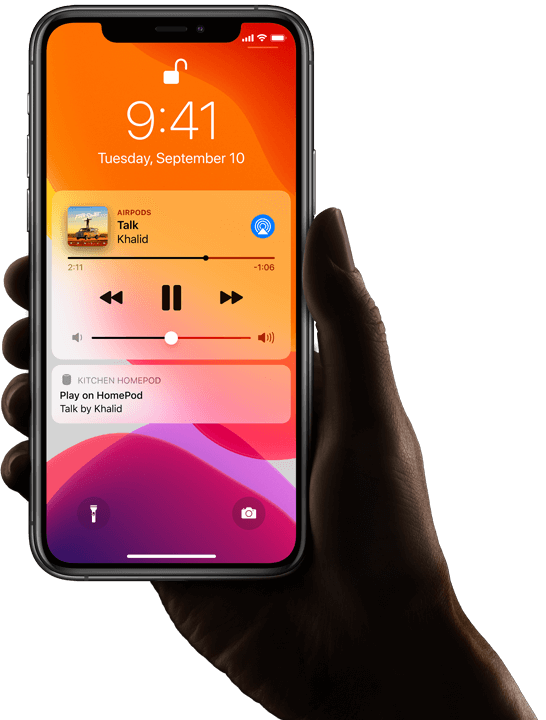How to Gain a Better Understanding of SEO and Voice Search Strategies

Last Updated on June 10, 2020 by Rick Rys
Page Contents
SEO and Voice Search Strategy
You can not underestimate the value of voice search. Voice search information originates from search engines such as Google and Bing. Your website must undergo sophisticated search engine optimization | SEO to keep your brand “visible” in a new audible world. Developing a sound SEO and voice search strategy will ensure your brand is prevalent in voice search results on cellphones and personal assistant apps.
Contents of this page:
SEO and Voice Search Strategy
Voice Search: A Definition
How SEO Affects Voice Search and Website Search
How to Optimize For Voice Search
Voice Search Provides Great Opportunities
SEO and Voice Search Strategy

In the era of smartphones, the next level of search opportunity is voice-activated speakers such as Amazon Echo, Google Home, and Apple HomePod. These portable devices are now a common feature in our homes and business facilities, providing us with voice-activated search results on the spot.
Voice search results from Google Assistant, Siri, Cortana, and Alexa all stem from search engine data that results from the exceptional combination of SEO and search engine optimization. Not to mention, all voice search data originates from Google and Bing.
Artificial intelligence is what powers search results, and it learns from every interaction. Interaction allows it to gain a better understanding of the intention behind each search query while also being able to interpret the user’s context for these queries.
Voice Search
Voice Search: A Definition

Voice search pertains to voice-activated speaker technology, which makes use of speech recognition to understand what users are saying and provide the most precise results.
Voice search allows users to make search queries using their device’s microphone instead of having to type what they need into the search engine. Once you make a search query, the AI voice search assistant will deliver results back to you via audio.
Voice search technology has been around for quite a while, only in different forms, such as voice dialing and speech-to-text. With the introduction of assistant programs such as Siri, Cortana, Alexa, and Google Assistant, every mobile device has this voice search capability. It’s also possible to optimize specific devices, platforms, websites, and brands for voice search. And it’s undeniable that voice search technology has allowed brands to optimize their interfaces significantly.
SEO Effects Voice Search
How SEO Affects Voice Search and Website Search

Voice search truly elevates user experience to an entirely new level. For this reason, voice search is the most popular way to do online searches, which explains why search engines are paying more attention to optimizing voice search.
Ultimately, SEO is at the forefront of user experience because the objective is to properly rank websites so users can find the most valuable information in the minimum amount of time. However, website SEO and voice search SEO are two very different things.
Factors that affect website ranking may not affect voice search and vice versa. For starters, user behavior is different when interacting with text searches and voice searches. When we type in our search, we keep it simple and concise. But when we do a voice search, we are very specific about what we’re looking to receive. We place more emphasis on the why, what, who, and where. For this reason, a voice search query composes of long-tail keywords.
The good news is that there are ways to balance these two SEO strategies and rank your website on both voice search and search listings.
Optimize for Voice Search
How to Optimize For Voice Search
Even though text-based searches and voice searches have different intentions, Google uses the same ranking algorithm for both. Based on that, here are a few tips on how you can optimize for voice search effectively:

1. Make Sure Your Website Is Quick to Load
Google voice search will favor those websites that are quick to load. Websites that load quickly have a responsive design and work well on all devices.
Images must be optimized, files compressed, server response time reduced, your website should be speed optimized, and you should use website caching to improve page speed. All these things will make for faster loading time, which is key to ranking higher.
2. Write How You Speak
When users do a text-based search, they use concise phrases. For example, if someone’s looking for a great social media marketer, they would type something like “best social media marketing companies.” But when they do a voice search, they might say “what are the best social media marketing companies near me,” or “in the country,” or “in the world.”
So, there’s a big difference.
The user’s concise intent is why you must optimize your content for voice search by writing how you speak. Including natural long-tail keywords and making your information easy to comprehend is essential to a higher rank.
3. Work With Featured Content
On average, voice search results are about 29 words long. However, we know shorter answers perform better, so what can we do to make sure Google will identify it and read it back to users?
Well, by creating featured snippets, also known as quick answers. Mostly, they’re a summary answer to your main content. It’s what we see right below the paid ups and above the search listings.
Make your featured snippets include long-tail keywords, and you’ll be golden!
4. Implement Schema Markup on Your Website
Google and Bing search engines look at many factors in determining a webpage’s relevance and where the page will position in search engine result pages or SERP.
One crucial factor is Schema markup. Schema markup is structured data that search engines understand.
It does not directly affect the rankings, but it can give your website an edge over your competitors and help your site with voice search results.
Schema is metadata that appears in the website’s source code and is crawled by search engine spiders such as GoogleBot.
Your website visitors do not see it, but Schema data helps search engines to organize and classify your content. Search experts do not commonly use it because it requires to add specially structured data.
Syreo uses Schema markup on all pages where structured data will create a better user experience for website visitors and their intent.
Opportunity
Voice Search Provides Great Opportunities

Before we know it, voice search results will make up 30% of the search queries provided by Google. With voice search results increasing, this is why it’s so important to consider it if you want to increase conversion and brand awareness.
A voice search SEO strategy is vital to accomplish this, simply because users are increasingly engaging in voice search and relying on it. Investing in voice search optimization will increase not only brand awareness but also online purchases and revenue.
According to a study, $1.81 billion of Amazon’s revenue stemmed from voice search eCommerce, and this figure will continue to increase to $40 billion by 2024. With this in mind, can anyone deny the power of voice search and how important it is for businesses to optimize it?
Voice search is becoming more and more popular, and its professional use is on the rise as well. If you start optimizing your website for voice search today, you’ll be getting ahead of the competition, which is more important than ever in such a quick-paced market. You’ll have better voice search rankings, and this will effectively grow your brand, making your business a lot more successful than before.
We recommend working with SEO professionals to optimize your website for voice search so you can get the best results from your strategy.
Conclusion
Voice search is essential to increasing brand awareness and conversions.
Investing in SEO and voice search strategy is proven to improve brand awareness, online purchases, and revenue.
But despite the ever-growing prominence of voice search, its popularity and professional use are still on the rise. But if you optimize your site for voice search now, you’ll likely be ahead of the competition and see stable voice search rankings that will effectively grow your brand long-term.
Image: Apple Siri
Image: Google Assistant
If you are interested in talking to us about an SEO and Voice Search strategy,
please send us a message or call us direct at (248) 974-8866.
About Syreo
Syreo is an SEO Consultant based in Detroit, Michigan. Syreo’s search engine optimization | SEO experts work with Fortune 500 businesses throughout the United States including Detroit and New York City. Syreo consults companies to increase revenue organically, through thoughtful digital marketing tactics and the expert use of search engine optimization | SEO. Syreo understands how to bridge the gap between the CMO (Chief Marketing Officer) and the CIO (Chief Information Officer), bringing data, science, and technology to life through creative storytelling that all stakeholders can understand and embrace. Syreo understands the importance of visual design that generates great user experience (UX) that converts into marketing goals through web analytics.

